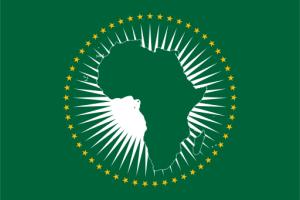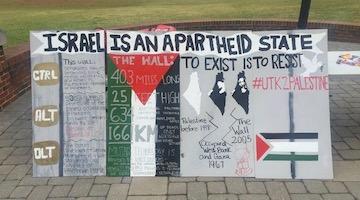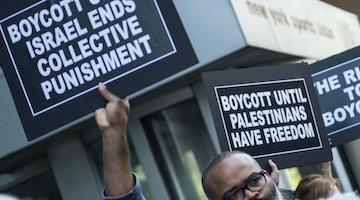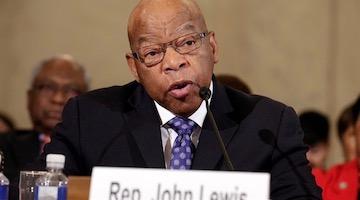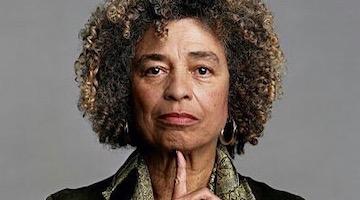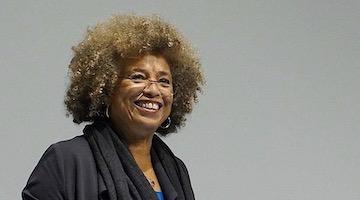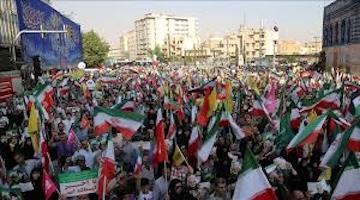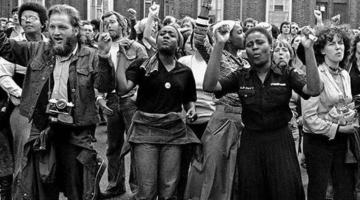Many African governments are giving Israel exactly what it wants – a way to break out of its isolation and legitimize its Apartheid.
“Israel has won the support of some of Africa’s ruling classes, but it has failed to win the African people.”
For years, Kenya has served as Israel’s gateway to Africa. Israel has been using the strong political, economic and security relations between the two states as a way to expand its influence on the continent and turn other African nations against Palestine. Unfortunately, Israel’s strategy seems, at least on the surface, to be succeeding – Africa’s historically vocal support for the Palestinian struggle on the international arena is dwindling.
The continent’s rapprochement with Israel is unfortunate, because, for decades, Africa has stood as a vanguard against all racist ideologies, including Zionism – the ideology behind Israel’s establishment on the ruins of Palestine. If Africa succumbs to Israeli enticement and pressure to fully embrace the Zionist state, the Palestinian people would lose a treasured partner in their struggle for freedom and human rights.
But all is not lost.
Recently, I visited Kenya’s capital city Nairobi to partake in discussions with the country’s journalists, intellectuals, human rights activists and ordinary citizens in an effort to counter some of the propaganda inflicted by Israel’s hasbara machine in recent years. Keeping Israel’s success in penetrating various layers of the Kenyan society in mind, I also wanted to explore whether there is still some potential for solidarity.
I was pleasantly surprised at the end of my visit, as I discovered that Israel’s “success story” in Kenya and the rest of Africa is a superficial one and the affinity between Africa and Palestine is far too deep for any “charm offensive” by Israel to easily eradicate.
The Long History of African Solidarity with Palestine
According to Israeli political analyst Pinhas Anbari, Israel’s “charm offensive in Africa” started after Israel failed to convince European states to support its policies vis-a-vis the Palestinians.
“When Europe openly expressed its support for the establishment of a Palestinian state,” Anbara said, “Israel made a strategic decision to focus on Africa.”
But the EU’s support for a Palestinian state and occasional criticism of the illegal Jewish settlements in the Occupied Territories was not the only reason behind Israel’s decision to turn its face towards Africa.
Most African countries, – like most countries in the global south – have long been voting in favor of pro-Palestinian resolutions at the United Nations General Assembly (UNGA), further contributing to Israel’s sense of isolation on the international stage. As a result, winning back Africa became a modus operandi in Israeli international affairs – “winning back” because Africa has not always been hostile to Israel and Zionism.
Ghana officially recognized Israel in 1956, just eight years after its inception, and started a trend that continued amongst African countries for years to come. By the early 1970s, Israel had established a strong position for itself on the continent. On the eve of the 1973 Israeli-Arab war, Israel had full diplomatic ties with 33 African countries.
“Winning back Africa became a modus operandi in Israeli international affairs.”
“The October War”, however, changed all of that. Back then, Arab countries, under Egyptian leadership, functioned, to some extent, with a unified political strategy. And when African countries had to choose between Israel, a country born out of Western colonial intrigues, and the Arabs, who suffered at the hands of Western colonialism as much as Africa did, they naturally chose the Arab side. One after the other, African countries began severing their ties with Israel. Soon enough, no African state other than Malawi, Lesotho and Swaziland had official diplomatic relations with Israel.
Then the continent’s solidarity with Palestine went even further. The Organization of African Unity – the precursor to the African Union – in its 12th ordinary session held in Kampala in 1975, became the first international body to recognize on a large scale the inherent racism in Israel’s Zionist ideology by adopting Resolution 77 (XII). That very resolution was cited in UNGA Resolution 3379, adopted in November of that same year, which determined that “Zionism is a form of racism and racial discrimination”. Resolution 3379 remained in effect until it was revoked by the Assembly under intense American pressure in 1991.
Regrettably, Africa’s solidarity with Palestine started to erode in the 1990s. It was in those years that the US-sponsored peace process gained serious momentum, becoming the Oslo Accords and other agreements that normalized the Israeli occupation without giving Palestinians their basic human rights. With many meetings and handshakes between beaming Israeli and Palestinian officials featuring regularly in news media, many African nations bought into the illusion that a lasting peace was finally at hand. By the late 1990s, Israel had reactivated its ties with a whopping 39 African countries. As Palestinians lost more land under Oslo, Israel gained many new vital allies in Africa and all over the world.
Yet Israel’s full-fledged “scramble for Africa” – as a political ally, economic partner and a client for its “security” and weapons technologies – didn’t fully manifest until recently.
The Israeli Scramble for Africa
On July 5, 2016, Benjamin Netanyahu kick-started Israel’s scramble for Africa with a historic visit to Kenya, which made him the first Israeli prime minister to visit Africa in the last 50 years. After spending some time in Nairobi, where he attended the Israel-Kenya Economic Forum alongside hundreds of Israeli and Kenyan business leaders, he moved on to Uganda, where he met leaders from other African countries including South Sudan, Rwanda, Ethiopia and Tanzania. Within the same month, Israel announced the renewal of diplomatic ties between Israel and Guinea.
The new Israeli strategy flowed from there. More high-level visits to Africa and triumphant announcements about new joint economic ventures and investments followed.
However, diplomatic and economic efforts to win over Africa soon proved insufficient for Israel’s prime minister. So, he succumbed to rewriting history to improve Israel’s standing on the continent.
In June 2017, Netanyahu took part in the Economic Community of West African States (ECOWAS), held in the Liberian capital, Monrovia.
“Africa and Israel share a natural affinity,” Netanyahu claimed in his speech. “We have, in many ways, similar histories. Your nations toiled under foreign rule. You experienced horrific wars and slaughters. This is very much our history.”
With these words, Netanyahu attempted not only to cover the ugly face of Zionist colonialism and deceive Africans but also rob Palestinians of their history.
Despite Netanyahu’s blatant lies about “similar histories”, Israel’s charm offensive in Africa went from success to success. In January this year, for example, Chad, a Muslim-majority nation and central Africa’s geo-strategically most important country, established economic ties with Israel.
As it tried to establish itself as a partner to African nations, Israel did make some contributions that benefited Africans, such as delivering solar, water and agricultural technologies to regions in need. However, these contributions came at a significant cost.
“Israel’s charm offensive in Africa went from success to success.”
When, for example, in December 2016, Senegal co-sponsored UN Security Council Resolution 2334, which condemned the construction of illegal Jewish settlements in the occupied West Bank and East Jerusalem, Netanyahu recalled Israel’s ambassador to Dakar and swiftly canceled the Mashav drip-irrigation projects – The projects had previously been “widely promoted as a major part of Israel’s contribution to the “fight against poverty in Africa.”
Israel not only used projects like these to punish African nations when they failed to give blind support to Israel in international forums, it also used this new relationship to turn Africa into a new market for its arms sales.
African countries such as Chad, Niger, Mali, Nigeria, and Cameroon, among others, became clients of Israel’s “counterterrorism” technologies, the same deadly tools that are actively used to suppress Palestinians in their ongoing struggle for freedom.
And all this as Israel continues to champion the same racist, colonial mindset that enslaved and subjugated Africa for hundreds of years. This fact seems to have escaped African leaders who are lining up to receive Israeli handouts and support in their precarious “war on terror”. Moreover, barefaced anti-African racism that defines mainstream Israeli politics and society also seems of no consequence to the growing Israel fan club in Africa.
Many African governments, including those of Muslim-majority nations, are now giving Israel exactly what it wants – a way to break out of its isolation and legitimize its Apartheid.
“Israel is making inroads into the Islamic world,” said Netanyahu during the first visit by an Israeli leader to Chad’s capital, Ndjamena, on January 20, 2019. “We are making history and we are turning Israel into a rising global power.”
“Chad, Niger, Mali, Nigeria, and Cameroon, among others, became clients of Israel’s “counterterrorism” technologies.”
Palestinians and Arabs, of course, share some of the blame in all of this for abandoning their African allies in a fruitless chase after US-Western promises of a peace that never actualized. Arab politics have massively shifted since the mid-1970s. Not only are Arab countries no longer speaking in one voice and, thus, have no unified strategy regarding Africa or anywhere else, but some Arab governments are actively plotting with Tel Aviv and Washington against Palestinians. The Bahrain economic conference, held in Manama on June 25-26, was the latest case in point.
The Palestinian leadership has itself shifted its political focus away from the global south, especially since the signing of the Oslo Accords. For decades, Africa mattered little in the limited and self-serving calculations of the Palestinian Authority. For the PA, only Washington, London, Madrid, Oslo and Paris carried any geopolitical importance – a deplorable political blunder on all accounts. But this historical mistake must be remedied before Israel’s success story denies Palestinians any leverage in Africa and throughout the rest of the global south.
Yet, despite its many successes in luring African governments to its web of allies, Israel has failed to tap into the hearts of ordinary Africans who still view the Palestinian fight for justice and freedom as an extension of their own struggle for democracy, equality and human rights.
True, Israel has won the support of some of Africa’s ruling classes, but it has failed to win the African people, who remain on the side of Palestinians. Throughout my 10-day visit to their country, Kenyans from all walks of life showed me their support for Palestine in the most uplifting, authentic and natural ways.
“Israel has failed to tap into the hearts of ordinary Africans.”
In Nairobi, students, academics and human rights activists relate to the Palestinian people not as sympathetic outside observers of their struggle, but as their partners in a collective battle for justice, freedom and rights. Kenya’s bloody fight against British colonialism, its proud liberation war and its numerous sacrifices to win its freedom are almost a mirror image of the ongoing Palestinian struggle against another colonial and racist enemy.
Palestine will always be close to the heart of all Africans because of the painful, proud history of colonialism and resistance that we share. With that in mind, Palestinians should wake up to the fact that Israel is actively trying to rewrite their history and deprive them of the solidarity of peoples that perhaps understand their plight much better than most.
This would be a moral injustice that must not be allowed to prevail.
Ramzy Baroud is a journalist, author and editor of The Palestine Chronicle. His last book is ‘The Last Earth: A Palestinian Story’ (Pluto Press, London) and his forthcoming book is ‘These Chains Will Be Broken: Palestinian Stories of Struggle and Defiance in Israeli Prisons’ (Clarity Press, Atlanta). Baroud has a Ph.D. in Palestine Studies from the University of Exeter. His website is www.ramzybaroud.net
This article previously appeared in Palestine Chronicle.
COMMENTS?
Please join the conversation on Black Agenda Report's Facebook page at http://facebook.com/blackagendareport
Or, you can comment by emailing us at comments@blackagendareport.com



